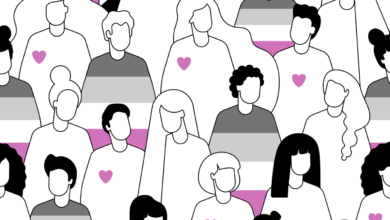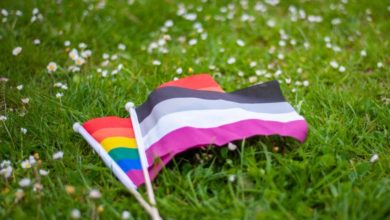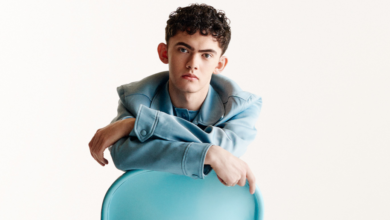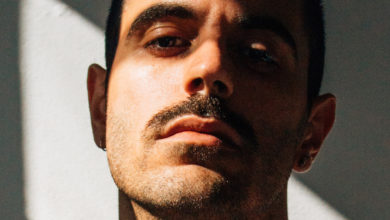„My sexuality is as natural as the colour of my eyes” – Interview with John M. Barac Montenegrin activist
We all have people in our life who are considered as distant acquaintances. They are the ones with whom we meet twice or three times all together. But thanks to social media we follow them and get impressions: where are they traveling to, when are they looking for a new apartment or celebrating anniversary. For me John M. Barac from Montenegro is this kind of guy. We met as LGBT activists twice in Budapest. And I was so curious about him and all his efforts.
Where were you born and how would you describe the environment where you grew up? Was it supportive, inspiring during the years of your education or rather the opposite?
I was born in the coastal area of Montenegro, known as the Boka Bay, which is considered to be one of the most beautiful places in all of Mediterranean region. Apart from its natural beauties, this Bay is also, historically, perceived as quite accepting and diverse, which included, to an extent, members of the LGBTQ community.
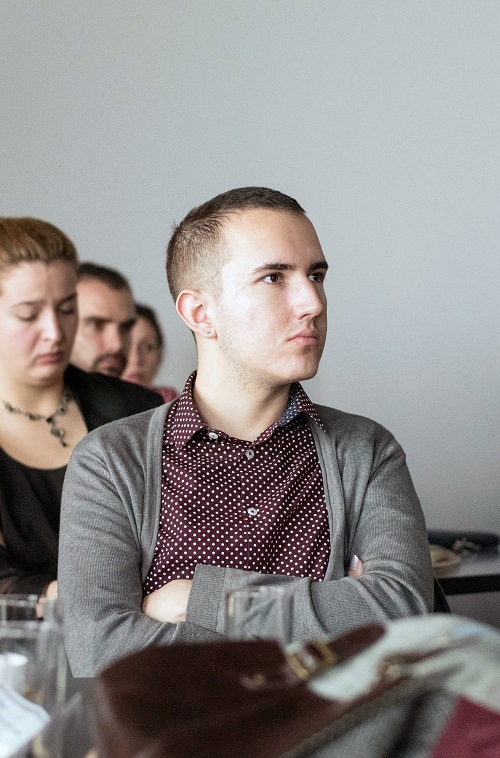
Of course, with Montenegro being a rather conservative and patriarchal country, this tolerance had its limitations; but on the whole life was well. My early childhood was unburdened by conventional strains of patriarchy – I had the fortune of being raised in a moderately liberal, but still traditional family, which never really tried to fit me inside a box. I was instilled with a strong sense of morality and tolerance, along with a strong desire to do good for others (this is probably why I am a human rights activist today).
However, not all was pretty and nice, because growing up gay, or rather more Queer in my case, meant that my peers were not all that accepting or open minded, and being less so as we aged and moved forward in life. Educational system both in my town and in whole of Montenegro lacked (and still lacks) proper approach to minorities and a healthy view on differences that exists among people – most notably sex, sexuality, gender identities, etc. Such curricula meant that the entire school environment lack adequate representation of my gay identity, making it very hard for me and those like me to understand their feeling, accept themselves, and eventually lead more healthy lives. Instead, I was forced into the closed, both at school, and in everyday life. Despite knowing that I would be judged mildly because of my sexuality, in the broader context of my home town, I hadn’t dared to even hint that I am gay, in any way. And the older I was, that sense of having to hide and pretend was getting stronger.
At some point, in high-school, once I hit peak puberty and could no longer hide my true self, I began expressing my sexuality out to the world (with great caution and concern, of course). I was able to find support and get more and more courage with time, which all came with a high price – the amount of bullying, abuse and discrimination soared as I was slowly coming out, posing real threat to my safety and well-being. Again, I was lucky to have built a support system, thus keeping me afloat through high-school years.
A magyar nyelvű interjú itt olvasható el.
How did you realize that you are gay? Could you share it with your family, friends?
I never really had that “A-ha!” moment, like some people do. I’d always known there was something “different” about me, in a sense that all the other boys were talking about girls, while I wanted to talk about other boys. But I simply never had a mainstream name for my feelings and desires. It was only once I got exposed to the Interned and some modern literature that I could say that I am gay, and what that word meant for me. I believe that such a moment is extremely powerful and important in a young person’s life, because of the clarification that it brings with it. One is no longer lingering and being confused, but has a name to describe what they are.
I could not share that realisation with anyone, for a long time. Not primarily because of the fear of being rejected and losing everything (which played a part), but because I was ashamed of not being “normal, like all others”. It was only when I grew out of that shame and accepted myself that I was able to share my identity with others. My first ever coming out was to my best and dearest friend Sara, some six years ago. Ever since then, the coming out process just kept culminating, and ended up with me coming out in front of some fifteen Montenegrin media and all of Montenegrin public, in early 2017.
As far as my family in concerned, I was telling them individually, over the years, carefully choosing how much and what to reveal. In the end, I told everyone who did not know I was gay, just before coming out publicly. I have not had issues with my immediate, which is a very rare thing to happen in Montenegro; but only love and support. They all understood that my sexuality is as natural as the colour of my eyes, and were very respectful along the way.

How do you see the society’s and politicians’ attitude towards the LGBT-community? How did it change in the last two decades? Can you share 1-2 national stories?
Montenegrin society has had a history of rejection and hatred towards the LGBTQ community, as a whole. Over the past seven years, different pools showed that anywhere between 60 and 90% percent did not approve of the LGBTQ community, some 40 to 70% percent believed that homosexuality is an illness, and some 50% would not have wanted to have a gay neighbour. While a lot has been done to reduce these attitudes and bridge that gap that exists between the public and the community, progress is very slow. The amount of prejudice, stereotypes and stigmatisation is still high, and the educational system does not contribute to positive change at all. Up until 2013/14, some textbooks in high-school curricula were defining homosexuality as a “deviation” or “illness”, but those books were cast out of schools following an extensive effort done by LGBT Forum Progress (the organisation I work for) and its allies. The simple truth is that, with an educational system that does not include all of the different aspects of human nature, in a positive and realistic way, the general public will not be able to develop positive views and attitudes.
Now, some may say that politicians are the group that can change that, but in Montenegro, and the Balkans in general, we have seen that this is not really the case. While Montenegrin politicians (most of them at least) give declarative support for the “struggles of minorities”, they don’t really translate that into their actions and activities. So, for example, a politician that support the LGBTQ community will go on their Facebook or other public platform and “accuse” his opponent of being gay (like it is a valid way to discredit someone), and in that way further stigmatising the community and portraying it in a negative way. Most of the support we receive is mandated by our accession process to the EU, which is adamant in saying that minorities in Montenegro must enjoy equal treatment and protection. Such trend of “declarative support” is pretty much how the politicians have been treating the LGBTQ community since the national movement emerged in late 2000’s.
It is very difficult to speak about the situation from two decades ago, simply because there was almost no public activism, no LGBTQ movement, and no awareness of the existence of the LGBTQ community. Unfortunately, the public narrative in early 2000’s was that “those people” do not exist in Montenegro, which was widely believed. Of course, we have existed since the beginning of humanity, in every country, including Montenegro. On the other hand, we have a quite clear timeline which started sometime in 2009, and resulted in the first LGBTQ group in Montenegro being formed in early 2010, which will grow into LGBT Forum Progress and become formally registered as a first LGBTQ non-governmental organisation in Montenegro in January 2011. Since then, we have seen the emergence of several other organisations, which followed in the footsteps of LGBT Forum Progress. In July 2013, Montenegro has had its first ever Pride Parade, in the coastal town of Budva – SeaSide Pride – which was met with immense hate and violent protest and hooligans wishing to kill and severely harm the participants. But, the Pride happened, and the wheels of visibility and LGBTQ history in Montenegro kept on turning forward.

Over the years, LGBT Forum Progress has initiated several programmes that are seen as milestones in our national movement. First, in late 2011, the LGBT Shelter opened its doors to all LGBTQ individuals who suffered violence and rejection at home. The programme has been active since. Second, between 2013 and 2016, we have operated the LGBTIQ Social and Community Center, which was the first space of its kind in Montenegro, serving as a safe harbour for everyone, and offering them a wide variety of activities and services – entertainment, education, health, sports, etc. We have also developed a programme aimed at working with the police officers in Montenegro, which has been successfully happening since 2012. At the same time, we are conducting monitoring of the Internet for hate speech, and reporting all such cases to the police. In six years, we have had several thousand cases, and produces four case-studies publications of those cases.
Finally, maybe the most relevant moment in our national LGBTQ movement and history is the story of Mr. Zdravko Cimbaljevic, who was the first ever Montenegrin to come out publicly as gay, in late 2010. This was truly a milestone, as it not only represented the beginning of the visibility of the LGBTQ community, but the long-needed process of change.
Now back to you – What did you study at the university?
I am currently studying marketing, and expecting to major in public relations next year. I found that filed of studies to be very suitable for me, as it both requires creativity and analytical thinking. Additionally, I am able to use everything I study and apply it directly through my work, which only makes it more relevant and interesting.
In what kind of international LGBT-projects have you been involved so far? Because I know that you are traveling a lot.
In the past several years, I have been a part of several international projects and activities. I would mention, primarily, that I have served as an international representative for my organisation while I was living in the United States of America, for almost a whole year. That was definitely a once in a lifetime experience, as I was able to lobby and advocate for the LGBTQ community in Montenegro, present the issues and obstacles we face in our lives, as well as build alliances and friendships. This work, I believe, has been the final step in the process of forging and shaping myself into a full-time human rights activist and defender. The experience, inspiration and courage I gained during that time changed me for the better and gave me the determination and willingness to fight for the cause of equality and progress in Montenegro.
What do you think what are the advantages and disadvantages of these programs?
Apart from this experience, I have travelled quite a lot around Europe, for various trainings, conferences, workshops, exchanges, etc. Each and every of those journeys was a growing experience, as every new group of people helps shape who you are as a person, as an activist, and what your view on matters of life is. In Budapest, which I have visited two times so far, I was able to see how the struggle for equality and acceptance of all persists in the face of state rejection and dismantling of democracy and tolerance. The courage I saw within my fellow activists in Hungary has had a profound impact on my life, and has given me a new perspective for my own work. I do strongly believe that every person we meet, every story we share, and every memory we form is another building block of our identity and life. No matter who you are, you are first and foremost human; and as such, you have the capacity to show compassion – a most human quality.
I have not seen any major disadvantages, so far, when it comes to this kind of work. Sure, it requires time and lots of travelling, but one gets used to it quickly.
How are you involved in national and local LGBT-activism? What are your future plans? And what do you think what can be achieved in the next 10 years?
Since Montenegro is a quite small country (some 620 000 people), local and national activism are often blurred and merged into one unified path. Of course, there are some distinct differences, but for the most part everything moves forward jointly. While advocacy for legislative purposes or decentralisation efforts are primarily done on a national level, all other matters are done on all levels equally – victim protection, police trainings, cultural activities, education, entertainment, etc. I work in several areas, both at the community level and on administrative and political one. My work includes management and administration, community outreach, public relations, project creation, legislative engagement, general advocacy and lobbying, etc. In a small country, and in a relatively average-sized human rights organisation that covers great number of topics and areas, one learns to be able to multitask and cover several different fields at once. Like a lot of my colleagues, I learned to cover all those areas, and more when necessary.
My plans, in the next several years, are to remain in Montenegro and see that the reforms that we started are completed, and ensure that there is a new generation of activists ready to take our places when the time comes. In this line of work, professional burnout is a significant problem, and many people need to take a step back after some time, pursue other goals, and then come back to activism and human rights work. I plan to do the same. Once I see that I am getting too exhausted to be fully functional, I will take a break, focus on other aspects of my personal and professional life, and then return to doing what I do now; either through political engagement, or in some other form. For now, I am happy with being an activist and human rights defender. I see this work as the ultimate form of public service, because we are the people who consciously chose to commit their lives for the betterment of others. Few things can be as selfless as that.

A lot can be done in three years, let alone in ten. It is up to the dedication, commitment and courage of those pushing for change. Our responsibility is to never give up on pursuing our goals of equality, unity and progress of all. Montenegro can become a much more open place in ten years, just like it has changed in the past 8-9. In that time, people have acknowledged the existence of the LGBTQ community, heard our stories and seen our faces. Now, the wheels of change are very slowly turning forward. If we fix all the gaps in our country – educational system, social protection, health service, etc. – we will come to a point where equality will be understood as natural order of things, and not something forced from the West. I have never and will never doubt the capacity of Montenegrin people to understand and accept all the shades of humanity there are on this Earth. I will only ever doubt the honesty and integrity of those who are leading us, our politicians and public figures, for they are the ones who bring about division and intolerance into our lives. I sincerely hope that, in a decade, Montenegrin constitution will state that marriage is a “union of two people”, and not “union of a man and a woman”, which it does right now. I sincerely hope that we will have politicians, artists, journalists, athletes, doctors, scientists, teachers, and all others who are openly out, and who are able to live their lives in Montenegro without any fear or rejection. A lot can be achieved, if we only open our minds a little bit.
How would you describe the LGBT-life in Montenegro? (dating opportunities, gay-friendly places, etc) And in the Balkan general?
LGBTQ life in Montenegro is very scarce, fragmented and hidden. In the capital city, Podgorica, our organisation was able to maintain a LGBTQ-only space, which was called “SOGI Caffe”, for exactly three years. This was the first and only space of its kind in the country, and it offered everything you can imagine the community may need or desire. After it was closed in 2016, we were left with half a dozen of accepting/friendly places in the city, in which it is okay to, let’s say, kiss your partner, but still be cautious of the general crowd around you. Some other towns have one or two such places, but they are rare as well.
As for dating, the gay community primarily relies on dating apps, or more specifically Planet Romeo and Grindr; followed by closed Facebook groups and other social media platforms; cruising spots; as well as word of mouth and private parties and social events. The ways of connecting for women are even lesser, with no widely used apps or other online platforms. In a society with such levels of homo/bi/transphobia, it is not surprising that people are afraid and that most of their personal lives are done in secrecy.
The annual Pride Parade has become rather obsolete and a pure parody of itself, which mainly causes an increase in the levels of verbal violence and online hate, as well as incidents of apparent rejection of LGBTQ youth by their families. On the whole, as the “highlight” of the year, the Parade remains void of any clear messages, or a unified and straightforward concept.
Other forms of LGBTQ-life in Montenegro are reduced to summer months, mainly on several nudist beaches on the coast, which host parties, social gatherings and overall engagement of the broader community. During other months, small, private events keep the community together and moving forward.
The entire Balkans is not far from this, with the exception of cities such as Belgrade, Zagreb or Sarajevo. In other areas, to the East, situation is almost identical to the one in Montenegro, if not worse in some cases. The entire region has a lot of hard work ahead, both in the process of democratisation, and in the process of acceptance of minorities.

Do you plan to move abroad?
As I mentioned, at this point I have no specific plans for moving anywhere, but I certainly intend to do so at some point. I will either go back to the USA (not until Annoying Orange is in power though), or explore possibilities in cities such as Berlin or London. But, life is unpredictable, and I never know what may come my way tomorrow. Again, I will move to pursue other personal and professional goals, or engage in activism on a pan-European level maybe. I find moving to be the easiest way out. Sure, I can pack my bags, find a place for myself somewhere else, and then what? I might have had made my life much easier, but I would have left behind a whole community for whose future is worth fighting for, no matter what.
Waliduda Dániel
Instagram: @wicked_witch_from_the_west, @waliduda


